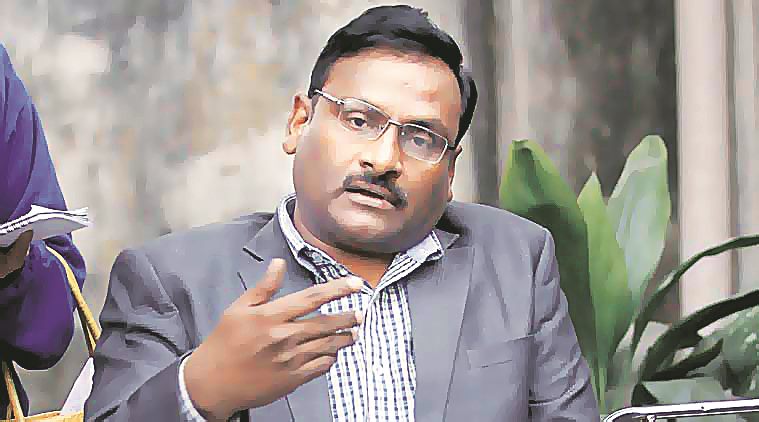 Prof GN Saibaba. (File Photo)
Prof GN Saibaba. (File Photo)
The Nagpur Central Prison has refused permission to former Delhi University professor and Maoist ideologue G N Saibaba to attend the post-funeral rituals of his mother, who died on Saturday.
Saibaba’s lawyer Akash Sorde said, “The funeral took place at Hyderabad on Saturday only due to reasons of Covid-19.”
The 74-year old had succumbed to cancer after a prolonged battle. As she had expressed a wish to see her incarcerated son, Saibaba had applied for bail. The Nagpur bench of the Bombay High Court, however, rejected his bail plea last week.
Saibaba’s brother had requested the jail authorities to release him to attend the post-funeral rituals.
“We have refused him permission to attend the rituals since he is a different kind of inmate,” Jail Superintendent Anup Kumar Kumre told The Indian Express. Asked what he meant by a “different kind of inmate”, Kumre said, “I can’t elaborate further on that.”
He added, “Some inmates don’t return after being released on parole or furlough. If he had been earlier released on parole or furlough and had returned in due course, we might have thought of releasing him this time.”
“But they can approach the High Court for bail again,” said Kumre.
On approaching the High Court for bail again, Saibaba’s lawyer Sorde said instead of that, they were planning to go for death parole.
The Nagpur bench of Bombay High Court has denied bail to Saibaba twice, in March and July. The former professor had sought the bail on health grounds first. In July, he had sought bail on two grounds — his co-morbid health problems and the need to see his ailing mother, who was on her deathbed, in Hyderabad. “We are not inclined to grant bail,” the bench had stated after hearing arguments from both sides.
In the order, however, the bench had skipped any observation on Saibaba’s plea that his ailing mother had a right to see him.
Saibaba, 51, was convicted by a Gadchiroli court of “Naxal links and indulging in activities amounting to waging a war against the country” in March 2017. He has been serving a life sentence in Nagpur’s Central Prison.